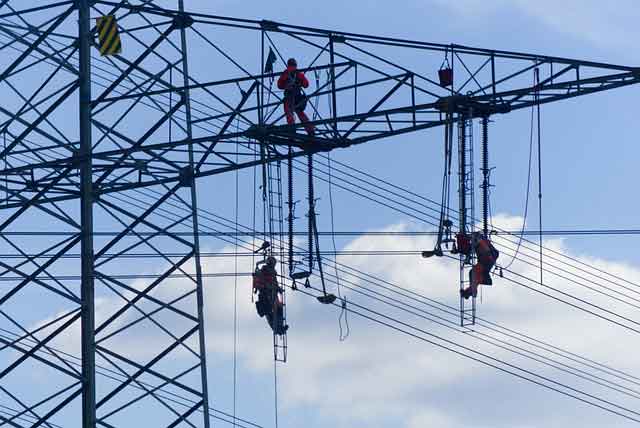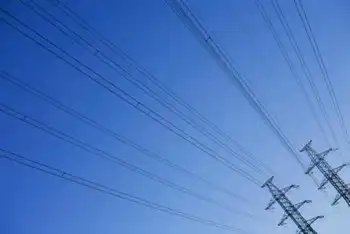Quest for renewables pits green vs. green
By Chicago Tribune
High Voltage Maintenance Training Online
Our customized live online or in‑person group training can be delivered to your staff at your location.

- Live Online
- 12 hours Instructor-led
- Group Training Available
Once considered wasteland, this expanse of sunshine and wind is now a prized battleground between unlikely opponents. For generations, conservationists like Sall's family have guarded the landscape, but 21st-century demands for renewable energy are threatening to crash into the pristine desert, now deemed a gold mine for solar, wind and geothermal farms.
Unlike offshore drilling and other oil and gas ventures in which developers and environmentalists are obvious adversaries, renewable energy is increasingly pitting two kinds of green advocates against each other as the nation seeks alternative sources in the face of record oil prices and global warming, both sides say.
The issue bears upon building a new infrastructure — such as gargantuan transmission towers or wind turbines — to connect remote areas where clean energy is being harvested while conservationists vigilantly protect the land and its life.
The stakes are acute in California, where new state laws demand industry cut carbon emissions to 1990 levels by 2020 and require private utilities to generate 20 percent renewable energy by 2010.
Near Pipes Canyon — where Sall, a preserve manager for the nonprofit Wildlands Conservancy, resides — a group led by the Los Angeles Department of Water and Power is considering building a leg of transmission lines between a substation outside Palm Springs and one in Hesperia, about 80 miles away.
Called Green Path North, the lines would ultimately connect Los Angeles and other communities to the Salton Sea's 2,000 megawatts of geothermal power — enough to juice 2 million homes — as well as solar and wind plants.
The utility group will select from six potential routes, including one as long as 313 miles, but a dispute over a "preferred" route through Pipes Canyon and the broader Morongo Basin has residents fuming.
"There's some conflict due to what's been described as a feeding frenzy for renewable energy in the desert," Sall, 28, said as she walked through a landscape of mesas and the Sawtooth Mountains that surround Pipes Canyon and adjacent Pioneertown.
"If you're going to destroy conservation and pristine lands, then, yeah, how green is it in the end?" Sall asked.
She said she favors cities' building solar plants on warehouse roofs, for example, but the utilities say the desert's geothermal fields provide a steady stream of power and do not rely on weather conditions as solar and wind power do.
Still, the dispute has led to tense meetings, and residents set up a Web site condemning the renewable-energy transmission lines through their communities.
As Congress and presidential candidates John McCain and Barack Obama struggle with the nation's energy crisis, developing alternative energy poses conflicts, too.
"We're really at the forefront of a discussion that is certainly going to be repeated throughout the state of California and nationally as well," said David Nahai, general manager and chief executive officer of the Los Angeles Department of Water and Power.











